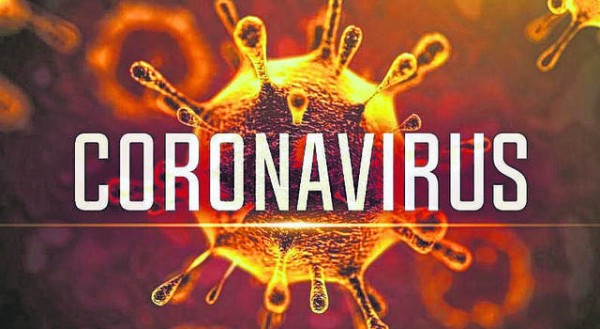
Reasons Heart Attack Death Rate Has Doubled During COVID-19, Most people would do almost anything to avoid going to the hospital during the COVID-19 pandemic over fears of contracting the novel coronavirus.
Unfortunately, that has included many people ignoring the signs of a heart attack.
A studyTrusted Source published this month in JAMA Cardiology shows the risks of neglecting those signs has ultimately had on people’s health.
The study focused on heart attacks during the pandemic.
Studies in the state of Oregon and Washington — two states that saw major coronavirus outbreaks — found that people having a serious heart attack were more than twice as likely to die of it as COVID-19 hit the United States in contrast with previous years.
The study looked at 15,244 hospitalizations involving 14,724 patients with acute myocardial infarction (AMI) — the medical term for a heart attack.
READ ALSO: Seek Help When Erection Fails
The researchers noticed the number of hospitalizations began to decrease about 19 percent over a 5-week period beginning Feb. 23, 2020.
That was about 2 weeks before the World Health Organization (WHO)Trusted Source declared the novel coronavirus was a pandemic.
The researchers looked at data from six states — Alaska, California, Montana, Oregon, Texas, and Washington — and compared that data to the same time period from 2018 and 2019.
They reported that hospitalizations for heart attacks began increasing again around March 29. Researchers noted those people were 1 to 3 years younger, had a shorter length of stay, and were more likely to be discharged.
Overall, however, the researchers concluded people were 2.4 times as likely to die from a heart attack when compared with pre-pandemic times, probably because they were less likely to be hospitalized.
“In the weeks and months to come, clinicians may see greater numbers of patients with more severe manifestations of AMI. With the uncertainty on timing of a COVID-19 vaccine, this study reinforces the need to address important care processes for patients with AMI to help mitigate further risk,” the researchers concluded in their study.
Concerns From Doctors
The research confirms anecdotal stories from earlier this year when doctors across the nation were concerned about where heart attack and stroke victims had gone as hospitals were preparing for a surge in cases of COVID-19.
Dr. Sanjiv Patel, an interventional cardiologist at MemorialCare Heart & Vascular Institute at Orange Coast Medical Center in California, told Healthline that the study was a good cross-sectional look at a trend of hospital admissions for acute heart attacks.
But, he says, more data is needed to determine why the mortality was higher.
Meanwhile, Dr. Nicole Weinberg, a cardiologist at Providence Saint John’s Health Center in California, says the study shows what’s being seen in hospitals as well as what her colleagues across the country have been talking about.
“It illuminates yet another reason to social distance and wear a mask,” she said. Why swift action is necessary While COVID-19 remains a global health crisis, heart disease remains the leading cause of death in the United States, according to the Centers for Disease Control and Prevention (CDC)Trusted Source.
And much like our response to the coronavirus should have been swift to avoid unnecessary deaths, experts say the same is true for how we should respond if we experience symptoms of a heart attack.
Patel says time is of the essence with heart attacks because an artery is blocked and the heart muscle is deprived of blood.
That’s why he says if your chest feels heavy and your arms hurt or feel numb, along with other symptoms, you should contact your doctor or call 911.
“Limiting the time of blood limitation to the heart muscle can save the heart function,” he said.
“With poor heart function, your long-term outcome is not good. Thus, despite the pandemic, if you have symptoms of heart attack, seek help immediately, as it may very well be the difference between life and death.”
Weinberg is more direct: “Missing a heart attack could be deadly.”
Lifestyle and stress
While it’s reasonable to have fears about being treated for nearly anything that isn’t immediately life threatening, people are resoundingly brushing off symptoms of a heart attack.
What’s worse is that shelter-in-place orders can make people fall into unhealthy routines, which could increase the risks of a heart attack. These include eating poorly, exercising less, or leaning more heavily on substances such as alcohol.
There’s also the new level of stress of trying to avoid the virus during simple daily activities, such as going to the grocery store or running other errands.
Even not being able to see our friends and loved ones, including disruptions in our routine, can be bad for our hearts. Research has shown the inflammation caused by depression can increase a person’s risk for a heart attack.
In addition, some of the signs and symptoms of a heart attack, such as pain in the chest and upper body, sweating, nausea, fatigue, or trouble breathing, also align with symptoms of COVID-19.
Even if a heart attack doesn’t kill you immediately, Weinberg says delaying treatment could lead to life-altering ramifications, including heart conditions like cardiomyopathy and congestive heart failure.
“We have been encouraging patients to utilize their resources ASAP when the concern strikes,” she said.
Weinberg recommends that if you’re worried you’re having a heart attack, put on a mask and get checked out in an emergency room or a cardiac urgent care facility.
“Oftentimes, quick testing can determine if you need further medical attention or can just leave right away,” Weinberg said.




